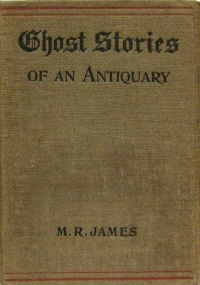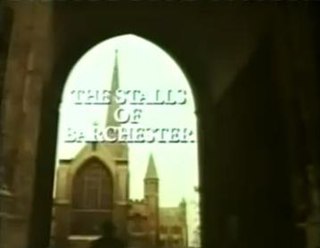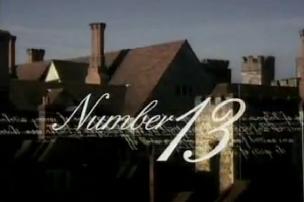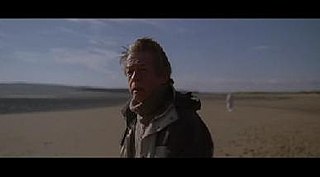
Montague Rhodes James was an English medievalist scholar and author who served as provost of King's College, Cambridge (1905–1918), and of Eton College (1918–1936) as well as Vice-Chancellor of the University of Cambridge (1913–1915). James's scholarly work is still highly regarded, but he is best remembered for his ghost stories, which are considered by many critics and authors as the finest in the English language and widely influential on modern horror.

Sir Michael Murray Hordern, CBE was an English actor. He is best known for his Shakespearean roles, especially King Lear. He often appeared in film, rising from a bit part actor to leading roles; by the time of his death he had appeared in nearly 140 films. His later work was predominantly in television and radio.

Quatermass and the Pit is a British television science-fiction serial transmitted live by BBC Television in December 1958 and January 1959. It was the third and last of the BBC's Quatermass serials, although the chief character, Professor Bernard Quatermass, reappeared in a 1979 ITV production called Quatermass. Like its predecessors, Quatermass and the Pit was written by Nigel Kneale.

Ghost Stories of an Antiquary is a collection of ghost stories by British writer M. R. James, published in 1904. Some later editions under this title contain both the original collection and its successor, More Ghost Stories (1911), combined in one volume.
Lawrence Gordon Clark is an English television director and producer, screenwriter, and author, best known for creating the supernatural anthology series A Ghost Story for Christmas, which originally aired on BBC One from 1971–1978, with Clark directing all but the final instalment as well as writing and producing the first two, The Stalls of Barchester (1971) and A Warning to the Curious (1972). The first five of these were based on the ghost stories of M. R. James, as was Casting the Runes (1979) which he directed for the ITV drama anthology series Playhouse.

A Ghost Story for Christmas is a British supernatural anthology television series created by Lawrence Gordon Clarke. Episodes take the form of short television films which air around Christmas, initially running annually on BBC One from 1971–1978, with sporadic revivals between 2005–2013 and regularly since 2018.

"The Stalls of Barchester" is a short film which serves as the first episode of the British supernatural anthology television series A Ghost Story for Christmas. Written, produced, and directed by the series' creator Lawrence Gordon Clark, it is based on the ghost story The Stalls of Barchester Cathedral by M. R. James, first published in the collection More Ghost Stories (1911). It stars Robert Hardy as Archdeacon Haynes of the fictional Barchester Cathedral, whose mysterious death is investigated 50 years later by the scholar Dr. Black, and first aired on BBC1 on 24 December 1971.

Number 13 is a short film which serves as the tenth episode of the British supernatural anthology television series A Ghost Story for Christmas. Written by Justin Hopper, produced by Richard Fell, and directed by Pier Wilkie, it is based on the ghost story of the same name by M. R. James, first published in the collection Ghost Stories of an Antiquary (1904), and first aired on BBC Four on 22 December 2006.

"The Signalman" is a short film which serves as the sixth episode of the British supernatural anthology television series A Ghost Story for Christmas. Written by Andrew Davies, produced by Rosemary Hill, and directed by the series' creator, Lawrence Gordon Clark, it is based on the ghost story The Signal-Man (1866) by Charles Dickens, and first aired on BBC1 on 22 December 1976, the earliest airdate in the series relative to Christmas.

"Stigma" is a short film which serves as the seventh episode of the British supernatural anthology television series A Ghost Story for Christmas. Written by Clive Exton, produced by Rosemary Hill, and directed by the series' creator, Lawrence Gordon Clark, it first aired on BBC1 on 29 December 1975, the latest airdate in the series relative to Christmas. At 31 minutes 47 seconds, it is the shortest episode in the original run, being 3 seconds shorter than The Ash Tree (1975)

Schalcken the Painter is a 1979 British television horror film based on the 1839 story Strange Event in the Life of Schalken the Painter by Sheridan Le Fanu, and stars Jeremy Clyde as Godfried Schalcken and Maurice Denham as Gerrit Dou. It aired on the BBC as an episode of Omnibus on 23 December 1979, following in the tradition of A Ghost Story for Christmas.

"'Oh, Whistle, and I'll Come to You, My Lad'" is a ghost story by British writer M. R. James, included in his collection Ghost Stories of an Antiquary (1904). The story is named after a 1793 poem of the same name penned by Robert Burns.
Folk horror is a subgenre of horror film and horror fiction that uses elements of folklore to invoke fear and foreboding. Typical elements include a rural setting, isolation, and themes of superstition, folk religion, paganism, sacrifice and the dark aspects of nature. Although related to supernatural horror film, folk horror usually focuses on the beliefs and actions of people rather than the supernatural, and often deals with naïve outsiders coming up against these. The British films Blood on Satan's Claw (1971), The Wicker Man (1973) and Witchfinder General (1968) are regarded as pioneers of the genre, while The Witch (2015) and Midsommar (2019) sparked renewed interest in folk horror. Southeast Asian cinema also commonly features folk horror.

Whistle and I'll Come to You is a short film which serves as the eleventh episode of the British supernatural anthology television series A Ghost Story for Christmas. Written by Neil Cross, produced by Claire Armspach, and directed by Andy De Emmony, it is based on the ghost story of the same name by M. R. James, first published in the collection Ghost Stories of an Antiquary (1904), and first aired on BBC Two on 24 December 2005. At 52 minutes it is the longest entry in the series' history.

"The Treasure of Abbot Thomas" is a short film which serves as the fourth episode of the British supernatural anthology television series A Ghost Story for Christmas. Written by John Bowen, produced by Rosemary Hill, and directed by the series' creator, Lawrence Gordon Clark, it is based on the ghost story of the same name by M. R. James, first published in the collection Ghost Stories of an Antiquary (1904), and first aired on BBC1 on 23 December 1974.

"Lost Hearts" is a short film which serves as the third episode of the British supernatural anthology television series A Ghost Story for Christmas. Written by Robin Chapman, produced by Rosemary Hill, and directed by the series' creator, Lawrence Gordon Clark, it is based on the 1895 ghost story of the same name by M. R. James and first aired on BBC1 on 25 December 1973. It is the first instalment to have been broadcast on Christmas Day itself, and one of only three in the series' history.

"A Warning to the Curious" is a short film which serves as the second episode of the British supernatural anthology television series A Ghost Story for Christmas. Written, produced, and directed by the series' creator, Lawrence Gordon Clark, it is based on the ghost story of the same name by M. R. James, first published in the collection A Warning to the Curious and Other Ghost Stories (1925) and first aired on BBC1 on 24 December 1972. At 50 minutes it is the longest instalment in the series' original run.

"The Ash Tree" is a short film which serves as the fifth episode of the British supernatural anthology television series A Ghost Story for Christmas. Written by David Rudkin, produced by Rosemary Hill, and directed by the series' creator, Lawrence Gordon Clark, it is based on the ghost story The Ash-tree by M. R. James, first published in the collection Ghost Stories of an Antiquary (1904), and first aired on BBC1 on 23 December 1975.

The Tractate Middoth is a short film which serves as the twelfth episode of the British supernatural anthology television series A Ghost Story for Christmas. Produced by Susie Liggat, it is the first instalment to be written and directed by Mark Gatiss, who has helmed every subsequent episode as of 2023. It is based on the ghost story of the same name by M. R. James, first published in the collection More Ghost Stories (1911), and first aired on BBC Two on 25 December 2013.

The author and medievalist M. R. James (1862-1936) wrote over 30 ghost stories, which have been widely adapted for television, radio, and theatre. The first adaptation of one of his stories was of A School Story for the BBC Midlands Regional Programme in 1932, the only one produced in James' lifetime. The only notable film adaptation is Night of the Demon (1957), directed by Jacques Tourneur and based on Casting the Runes, which is considered one of the greatest horror films of all time. The most celebrated adaptations of his works are those produced for British television in the 1960s and 1970s, which have made him, according to critic Jon Dear, “the go-to folk horror writer for television.”

















